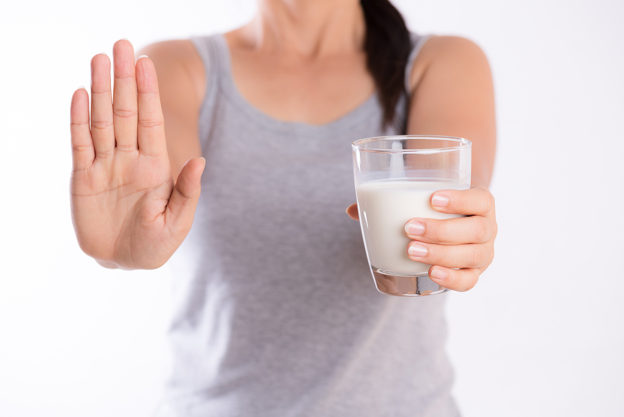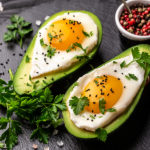By David Blyweiss, M.D., Advanced Natural Wellness
February 10, 2021
Milk… it does a body good, right? Well, actually no.
If you look at things from a medical perspective, milk is actually a huge problem. It contributes greatly to cancer and diabetes — among other problems…
Personally, I can’t eat dairy anymore without being close to a bathroom for a half-dozen visits over two or three hours.
That’s why my refrigerator is now filled with non-dairy alternative cheeses, creamer and milk for cereal and anywhere I need milk in cooking.
Now, which kind of non-dairy milk you choose depends on a few things. I’m going to give you the rundown here so you can decide which one you want to use for yourself.
The Case Against Drinking Milk
But first, let me explain a little more about why regular milk is such a problem.
If you really think about it, you’ll realize that humans are the only species who consumes milk after infancy. And it’s cow’s milk — milk from a completely different animal!
MD Exposes the Hidden Danger to Your Eyes

When your eyesight starts to fail, it's a real problem. Suddenly you can't go to the grocery store... you can't get to the doctor if you have an emergency... you can't meet your friends for dinner…
Your "regular" doctor doesn't have time to keep up with the latest research. And the same goes for eye doctors. They go to school to learn how to fit you for glasses and contacts, but have no way of preventing the damage and loss of eyesight that threatens your freedom and independence.
Let me show you something that explains a LOT about how your eyes work.
In my FREE Special Report, I'll show you a HUGE, untapped resource for your eyes that safely and naturally restores clear, effortless eyesight.
Click here to get started...
On top of that, the milk we drink is filled with drugs, hormones and antibiotics. It’s heavily processed so all the natural nutrition is removed. Then, it’s “fortified” to add those nutrients back in.
We should also consider milk’s effect on our bodies.
Milk doesn’t do “a body good” at all. In fact, it’s an allergen. It’s linked to cancer risk — especially breast cancer. And it’s linked to stomach problems and contributes to irritable bowel syndrome.[1]
When looking at the risk for cancer, it all comes down to hormones.
Milk is a major source of estrogen hormone in the human diet.[2] This hormone also happens to be a major promoter of breast cancer.[3]
One study found that drinking as little as ¼ cup of milk per day is associated with an 30% increase in breast cancer. Drinking two to three cups per day increased that risk to 70% to 80%![4]
Then, the casein in cow’s milk is also believed to be one of the causes of auto-immune responses in the pancreas. This means that milk increases your risk for becoming an insulin-dependent diabetic.[5]
So, if milk is so bad for you, what are the other options?
Well, let’s take a look at them one by one…
Dr Blyweiss’s Guide to Milk Alternatives
Soy Milk: Personally, I don’t care for soy milk. For one, I don’t like the taste. But, more importantly, soy milk has a large amount of isoflavones which may affect the estrogen receptors in your body and the function of your hormones. Moderate amounts of soy aren’t a problem, but concentrated amounts in soy milk might be.
Also, remember, that some 90% of soy is genetically modified. So, your soy milk is essentially concentrated, modified GMO soybeans with the poisonous herbicide glyphosate on it.
The World's Quickest Solution for Ending Prostate and Urinary Misery
This has recently been revealed to be one of the only real breakthroughs in prostate health.
The seeds of a strange fruit (sometimes called "Chinese Apples") hold powerful phytonutrients that are a revolution in prostate health.
In fact, UCLA and Veterans Administration research have now proved this to be true.
Not only that, but it may be the worlds quickest solution for ending prostate misery.
Simply stated, these phytonutrients represent a huge step beyond beta sitosterol, saw palmetto, and other phytosterols alone.
Simply click HERE if you want to have fast prostate relief...restful, uninterrupted sleep...no more constant "urges to go"...enhanced virility...and optimal prostate support for life.
So, unless you’re going to get organic soy milk, choose something else. One cup of soy milk is going to have less than 100 calories, 4-5 grams of fat, 8 grams of protein and 4 grams of carbohydrates.
Almond milk: I’ve used almond milk in the past and it’s alright. An unsweetened version will contain about 40 calories per cup with 1 gram of carbohydrates, 3 grams of fat, and 2 grams of protein.
It’s made from ground almonds and filtered water, so it’s not good for people who have a nut allergy. It’s not a great source of protein or calcium, but many brands will be supplemented with calcium, vitamin A and vitamin D. At the store, you’ll find almond “blends” where it is mixed with coconut milk to give you the best of both worlds.
Oat Milk: This is actually a current favorite. My refrigerator has oat milk creamer for my coffee and oat milk for recipes that require milk. I like the unflavored kind to mix into my mashed potatoes.
In its simplest form, this is just oats and water. I like the organic brands that don’t have a lot of extra ingredients. I find that it tastes a lot like the milk you would drink at the button of your cereal bowl.
One of the reasons I like oat milk so much is because it has a lot of fiber. It also has something called beta-glucan — which is antimicrobial. Oat milk helps with metabolic issues and can help you keep your cholesterol levels lower.[6]
Coconut Milk: This type of milk is great, especially when you’re cooking Thai food. The milk actually comes from the white flesh of a brown coconut. It’s got a creamy texture and a subtle coconut taste.
If you’re watching your nutrition, coconut milk has the lowest protein and carb content of any of the nut milks. It’s not your best option though if you need to increase your protein intake. It is good if you need to watch your carbs.
Rice Milk: I don’t personally like rice milk. It’s usually made from white rice, but might also come from brown. Thickeners need to be added to make the rice milk have the right taste and texture. Like rice, it’s the least allergenic of the non-dairy milks. So, if somebody has a nut allergy or a gluten intolerance, rice milk would be the way to go.
Since it’s made mainly from carbohydrates (in the rice), it’s a good option for active folks who want to use it before exercising.
Cashew Milk: Cashew milk is one of my favorites because it’s richer and creamier. Sadly, I haven’t found a vanilla cashew creamer to use for my coffee. It has a lower protein content than other nut milks.
Macadamia Milk: This is one I’ve never tried. It’s mostly water and has maybe 3% macadamia nuts in there. It’s also a higher fat milk option.
Hemp Milk: This type of milk has a similar amount of fat as cow’s milk. Even though it’s made from hemp, it is not going to make you feel “high.” I’ve had it, but I found it to be a bit too watery for my taste.
Hemp milk contains a complete profile of amino acids and is rich in omega-3 fatty acids. It’s made from whole hemp seeds and is free from soy, lactose, and gluten.
Organic Milk: After reading through these options, some of you are still going to be wishing for your plain old cow’s milk. Well, I have one final option… organic milk.
If you are going to drink cow’s milk, make sure it’s an organic brand…it’s the only way to go if cow’s milk is your choice.
Sources:
[1] Aune D, et al. Dairy products, calcium, and prostate cancer risk: a systematic review and meta-analysis of cohort studies. Am J Clin Nutr. 2015 Jan;101(1):87-117.
[2] Hartmann S, Lacorn M, Steinhart H. Natural occurrence of steroid hormones in food. Food Chem 1998;62:7–20.
[3] Toniolo PG, Levitz M, Zeleniuch-Jacquotte A, et al. A prospective study of endogenous estrogens and breast cancer in postmenopausal women. J Natl Cancer Inst 1995;87:190–7.
[4] Loma Linda University Adventist Health Sciences Center. “New study associates intake of dairy milk with greater risk of breast cancer: Evidence suggests consistently drinking as little as one cup per day may increase rate of breast cancer up to 50%.” ScienceDaily. ScienceDaily, 25 February 2020. <www.sciencedaily.com/releases/2020/02/200225101323.htm>.
[5] Scott FW. Cow milk and insulin-dependent diabetes mellitus: is there a relationship? Am J Clin Nutr. 1990 Mar;51(3):489-91. doi: 10.1093/ajcn/51.3.489. PMID: 2309656.
[6] Whitehead A, Beck EJ, Tosh S, Wolever TM. Cholesterol-lowering effects of oat β-glucan: a meta-analysis of randomized controlled trials. Am J Clin Nutr. 2014 Dec;100(6):1413-21. doi: 10.3945/ajcn.114.086108. Epub 2014 Oct 15. PMID: 25411276; PMCID: PMC5394769.








What about grass milk?